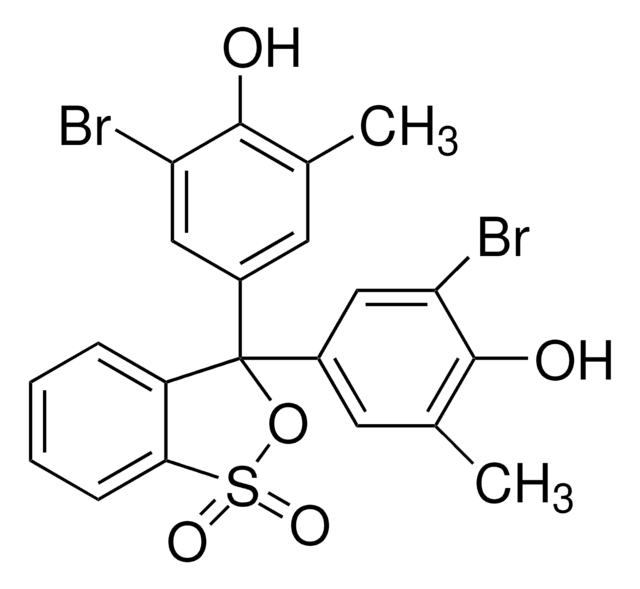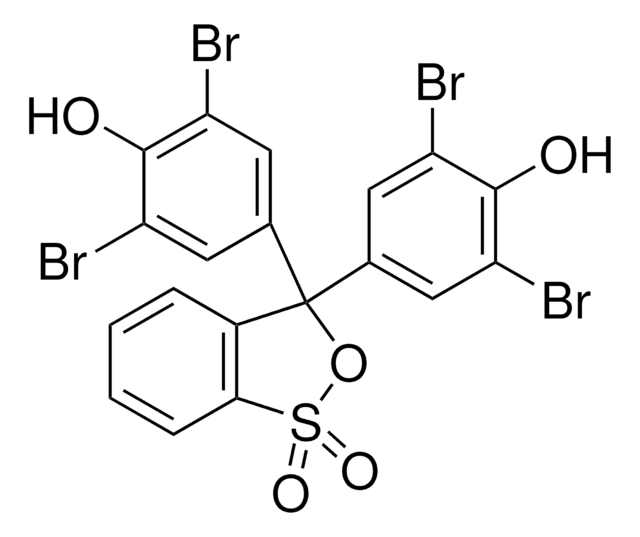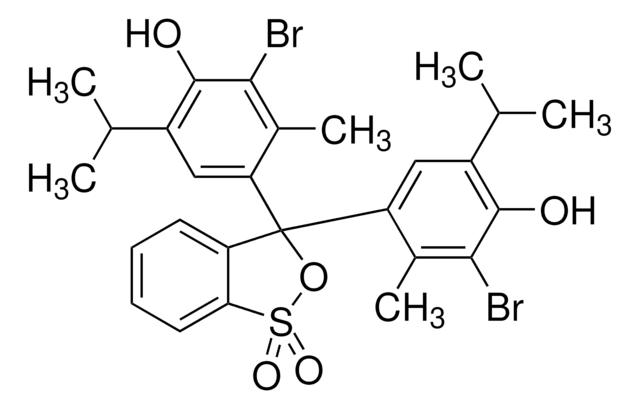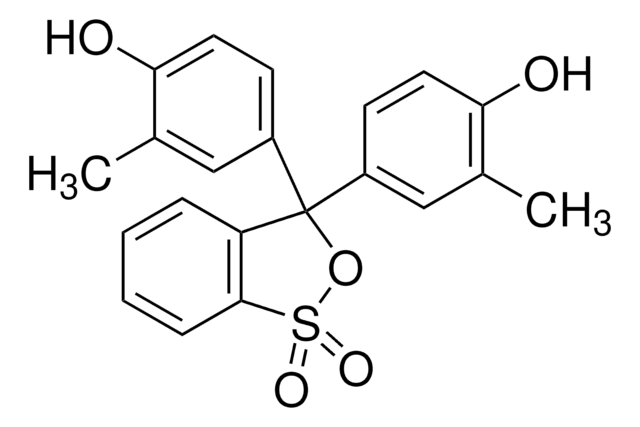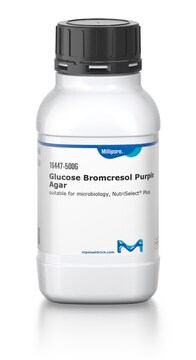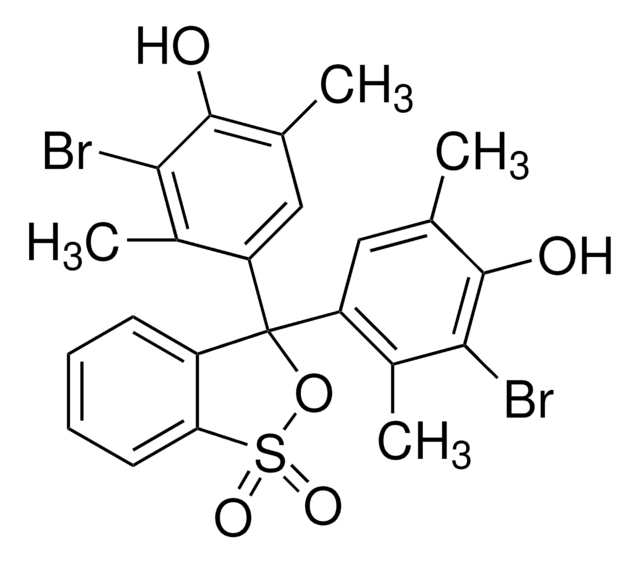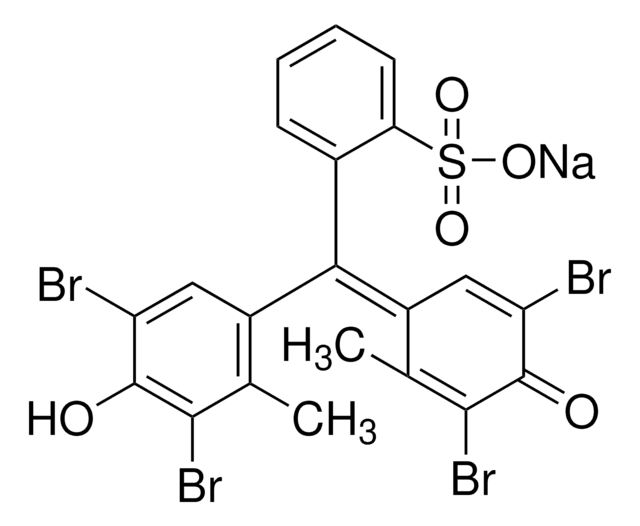114375
Bromocresol Purple
BioReagent, suitable for indicator, Dye content 90 %
Synonym(s):
5,5′-Dibromo-o-cresolsulfonphthalein, Bromcresol purple sultone form
About This Item
Recommended Products
product line
BioReagent
Quality Level
Assay
≥89.0% (HPLC)
form
powder
composition
Dye content, 90%
technique(s)
titration: suitable
pH
5.2-6.8, yellow to purple
visual transition interval
5.2-6.8, yellow to blue
mp
240 °C (dec.) (lit.)
solubility
ethanol: 1 mg/mL
λmax
419 nm
ε (extinction coefficient)
≥22000 at 418-424 nm in methanol
suitability
suitable for indicator
application(s)
diagnostic assay manufacturing
hematology
histology
storage temp.
room temp
SMILES string
Cc1cc(cc(Br)c1O)C2(OS(=O)(=O)c3ccccc23)c4cc(C)c(O)c(Br)c4
InChI
1S/C21H16Br2O5S/c1-11-7-13(9-16(22)19(11)24)21(14-8-12(2)20(25)17(23)10-14)15-5-3-4-6-18(15)29(26,27)28-21/h3-10,24-25H,1-2H3
InChI key
ABIUHPWEYMSGSR-UHFFFAOYSA-N
Looking for similar products? Visit Product Comparison Guide
Related Categories
Application
Biochem/physiol Actions
Storage Class Code
11 - Combustible Solids
WGK
WGK 3
Flash Point(F)
Not applicable
Flash Point(C)
Not applicable
Personal Protective Equipment
Regulatory Listings
Regulatory Listings are mainly provided for chemical products. Only limited information can be provided here for non-chemical products. No entry means none of the components are listed. It is the user’s obligation to ensure the safe and legal use of the product.
JAN Code
114375-VAR:
114375-25G:
114375-BULK:
114375-500G:
114375-5G:
Choose from one of the most recent versions:
Certificates of Analysis (COA)
Don't see the Right Version?
If you require a particular version, you can look up a specific certificate by the Lot or Batch number.
Already Own This Product?
Find documentation for the products that you have recently purchased in the Document Library.
Customers Also Viewed
Our team of scientists has experience in all areas of research including Life Science, Material Science, Chemical Synthesis, Chromatography, Analytical and many others.
Contact Technical Service
